Filter by

The Transformation of Economic Life under the Roman Empire = Proceedings of t…
Did a Roman imperial economy exist under the Late Republic, the Roman Principate and the Later Roman Empire? And if so, what type of economy was it? Another equally important question is: did the Roman Empire, by specific actions, the creation of infrastructures, or its very existence, trigger a transformation of economic life in the regions which it dominated? Or was the Empire a marginal affa…
- Edition
- -
- ISBN/ISSN
- 9789004401624
- Collation
- 288 hlm; ill., lamp.,
- Series Title
- Impact of Empire, Volume: 2
- Call Number
- -

The Representation and Perception of Roman Imperial Power = Proceedings of th…
From the days of the emperor Augustus (27 B.C.-A.D. 14) the emperor and his court had a quintessential position within the Roman Empire. It is therefore clear that when the Impact of the Roman Empire is analysed, the impact of the emperor and those surrounding him is a central issue. The study of the representation and perception of Roman imperial power is a multifaceted area of research, which…
- Edition
- -
- ISBN/ISSN
- 9789004401631
- Collation
- 580 hlm; ill., lamp.,
- Series Title
- Impact of Empire, Volume: 3
- Call Number
- -
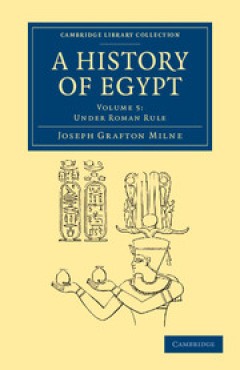
A History of Egypt
Published in six volumes between 1894 and 1905, this collection served as a valuable reference work for students and scholars of Egyptology at a time when ongoing archaeological excavations were adding significantly to the understanding of one of the world's oldest civilisations. At the forefront of this research was Sir William Matthew Flinders Petrie (1853–1942), whose pioneering methods ma…
- Edition
- -
- ISBN/ISSN
- 9781107325180
- Collation
- -
- Series Title
- Cambridge Library Collection - Archaeology
- Call Number
- -
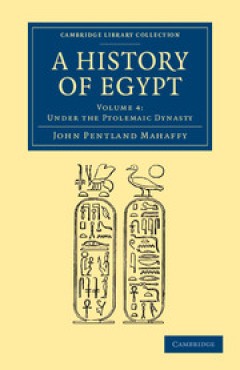
A History of Egypt
Published in six volumes between 1894 and 1905, this collection served as a valuable reference work for students and scholars of Egyptology at a time when ongoing archaeological excavations were adding significantly to the understanding of one of the world's oldest civilisations. At the forefront of this research was Sir William Matthew Flinders Petrie (1853–1942), whose pioneering methods ma…
- Edition
- -
- ISBN/ISSN
- 9781107325173
- Collation
- -
- Series Title
- Cambridge Library Collection - Archaeology
- Call Number
- -

A Historical and Topographical Guide to the Geography of Strabo
Strabo's Geography, completed in the early first century AD, is the primary source for the history of Greek geography. This Guide provides the first English analysis of and commentary on this long and difficult text, and serves as a companion to the author's The Geography of Strabo, the first English translation of the work in many years. It thoroughly analyzes each of the seventeen books and p…
- Edition
- -
- ISBN/ISSN
- 9781316848203
- Collation
- -
- Series Title
- -
- Call Number
- -
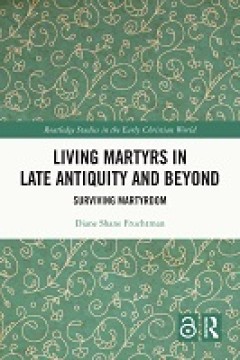
Living Martyrs in Late Antiquity and Beyond: Surviving Martyrdom
Antiquity; Living; Martyrdom; Martyrs; Surviving
- Edition
- Ed. 1
- ISBN/ISSN
- 9781032261065, 9781032263250
- Collation
- -
- Series Title
- -
- Call Number
- 930 FRU l
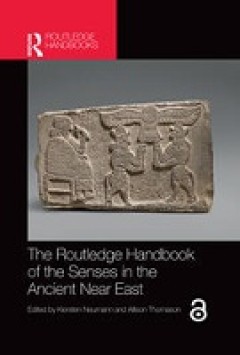
The Routledge Handbook of the Senses in the Ancient Near East
This chapter surveys and analyses the aromatic substances associated with burial and the preservation of the dead in the Iron Age Phoenician Levant (c. 1100–300 BCE), as part of an exploration of the lost smellscapes of the ancient world. First, Phoenician vocabulary related to smelling and pungent substances is outlined and investigated. Then, a review of coastal Levantine archaeological and…
- Edition
- -
- ISBN/ISSN
- 9780429280207
- Collation
- -
- Series Title
- -
- Call Number
- -

A Greek Army on the March Soldiers and Survival in Xenophon's Anabasis
Professor Lee provides a social and cultural history of the Cyreans, the mercenaries of Xenophon's Anabasis. While they have often been portrayed as a single abstract political community, this book reveals that life in the army was mostly shaped by a set of smaller social communities: the formal unit organisation of the lochos ('company'), and the informal comradeship of the suskenia ('mess gro…
- Edition
- -
- ISBN/ISSN
- 9780511482830
- Collation
- -
- Series Title
- -
- Call Number
- -
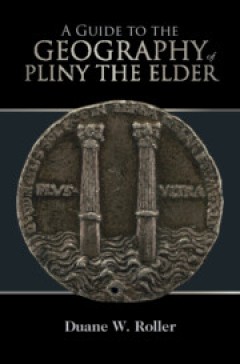
A Guide to the Geography of Pliny the Elder
This is the first thorough English commentary on the geographical books of Pliny the Elder, written in the AD 70s. Pliny's account is the longest in Latin, and represents the geographical knowledge of that era, when the Roman Empire was the dominant force in the Mediterranean world. The work serves both cultural and ideological functions: much of it is topographical, but it also demonstrates th…
- Edition
- -
- ISBN/ISSN
- 9781108693660
- Collation
- -
- Series Title
- -
- Call Number
- -
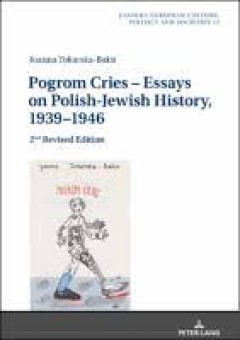
Pogrom Cries – Essays on Polish-Jewish History, 1939–1946 2nd Revised Ed…
This book focuses on the fate of Polish Jews and Polish-Jewish relations during the Holocaust and its aftermath, in the ill-recognized era of Eastern-European pogroms after the WW2. It is based on the author’s own ethnographic research in those areas of Poland where the Holocaust machinery operated. The results comprise the anthropological interviews with the members of the generation of Holo…
- Edition
- -
- ISBN/ISSN
- -
- Collation
- -
- Series Title
- -
- Call Number
- -
 Computer Science, Information & General Works
Computer Science, Information & General Works  Philosophy & Psychology
Philosophy & Psychology  Religion
Religion  Social Sciences
Social Sciences  Language
Language  Pure Science
Pure Science  Applied Sciences
Applied Sciences  Art & Recreation
Art & Recreation  Literature
Literature  History & Geography
History & Geography